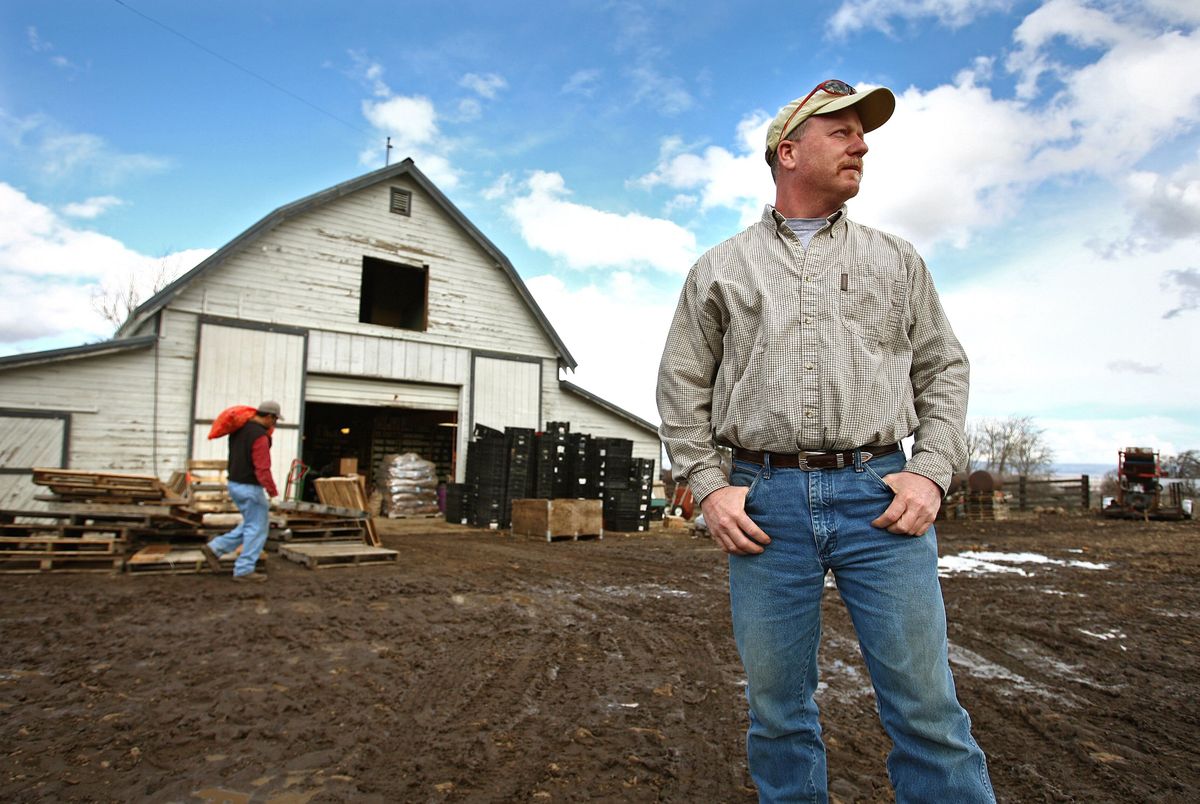Seed companies prosper in tough times
Consumers look to cut costs by growing gardens

ELLENSBURG – Out here on a farm just off Interstate 90, Greg and Sue Lutovsky hear every day how the economy is going.
Not so great for everybody else, excellent for them.
America had its Victory Gardens in backyards during World War II not just for the food, but also to boost morale.
Now Victory Gardens are making a comeback: the 2009 Recession version.
Sue is the one who answers the phone at the couple’s Irish Eyes Garden Seeds, which produces more than 400 kinds of seeds (mostly vegetables), as well as 70 kinds of potatoes and 25 kinds of garlic.
By some of the questions they get from customers, the couple know these are first-time gardeners.
“We had one person ask us which way the seed goes in the ground,” said Sue Lutovsky.
These days, she’s handling 100 customer calls a day, and the family business expects to gross $1 million in sales this year. Business is up 20 to 30 percent over last year, both in seeds under its own label and seeds it packages for companies such as Burpee and Park Seed.
The business has a dozen employees packing seeds from shelves full of bins.
In another warehouse, seed potatoes fill big wooden crates, the kind used in apple orchards. Last year, Irish Eyes produced 160,000 pounds of seed potatoes, up from 30,000 the year before.
They’ve already sold out of six varieties of the tubers.
Why potatoes?
Maybe people are reaching back into their collective memory to when potatoes were a staple food. Irish Eyes gets its name from that connection, the eyes referring to the eyes in a potato.
“It’s the perfect food crop. It’s got everything you need. It’s a food source with very little effort. It can be stored a long time,” Greg Lutovsky said. “There are not many things you can harvest in September and still be eating in June. You could live on potatoes and half a cup of cream and be healthy.”
Some dietitians would argue against a cream-and-potatoes diet, but there is no denying that many in this country are now in survival mode.
There is no retail outlet at the 13 acres at Irish Eyes (the couple leases an additional nearby 90 acres), but customers find it anyway in the wind-swept Ellensburg countryside.
Greg says the wind is just fine with him. It helps spread pollen, he says, and it keeps the crops dry, so fungal disease is almost nonexistent.
Recently, a customer drove from Montana, and another from North Idaho, to pick up seed potatoes. “We can ship them to you at the appropriate planting time, probably mid-April,” Lutovsky told them.
But the Montana customer, who bought 500 pounds of seed potato, “physically wanted them in their hands, I guess afraid we might run out,” he said. “I think they’re scared,” his wife added.
About the run on seeds, Greg Lutovsky said, “It’s just about everything that’s happening in the world – the stock market, the economy.”
The Montana customer, he said, is a contractor who does part-time farming and sells produce at local farmers markets.
With not too much contracting work these days, the farming helps a lot. Those 500 pounds of seed potatoes will produce 5,000 pounds of potato crop, according to Greg Lutovsky.
There is a simple math about planting your own garden.
“If a person has been laid off and had a finite amount of money, they’re looking at spending $2 for a head of lettuce that’ll last two days,” he said. “Or for $2 they can buy a packet of lettuce seeds that has 300 seeds and eat lettuce all summer long.”
It’s not just Irish Eyes that has been booming.
A retail garden store like Sky Nursery in Shoreline, Wash., says seed business is up “at least 20 percent.”
And Burpee, the Pennsylvania-based world’s largest seed company, says business also is up by that much.
On its Web site Burpee offers a “Money Garden” that for $10 puts together $20 worth of pea, tomato, pepper, bean, lettuce and carrot seeds.
The company claims the seeds will produce “over $650 worth of vegetables!”
“People are belt-tightening, particularly on large-ticket items,” said George Ball, chairman of Burpee. “It results in an almost Depression mentality.”